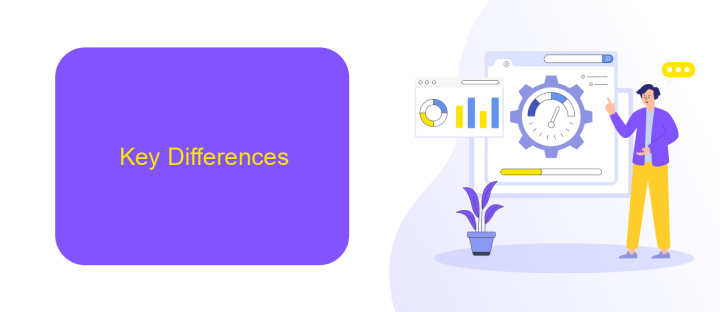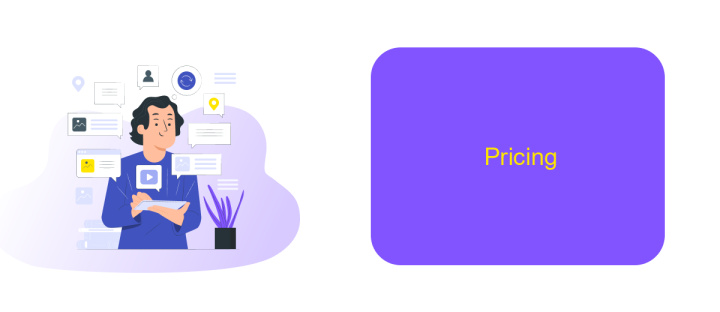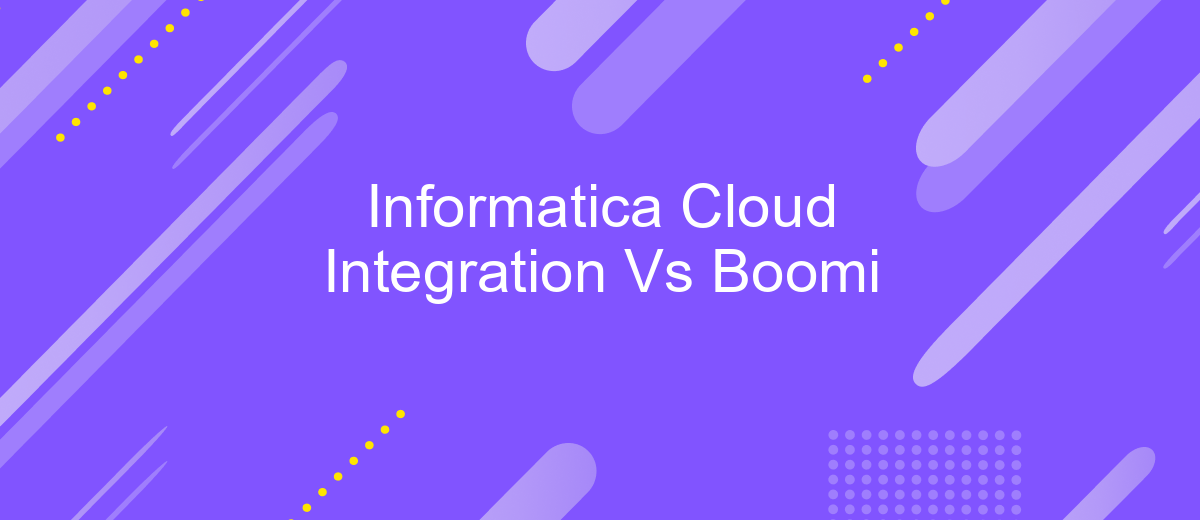Informatica Cloud Integration Vs Boomi
In today's fast-paced digital landscape, businesses are increasingly turning to cloud integration platforms to streamline operations and enhance data connectivity. Two leading solutions in this space are Informatica Cloud Integration and Boomi. This article delves into a detailed comparison of these platforms, examining their features, strengths, and potential drawbacks to help organizations make an informed decision.
Introduction
In the ever-evolving landscape of cloud integration, two prominent platforms stand out: Informatica Cloud Integration and Boomi. Both offer robust solutions for businesses looking to streamline their data processes and ensure seamless connectivity between various applications and systems. Understanding the key differences and unique features of each platform can help organizations make informed decisions tailored to their specific needs.
- Informatica Cloud Integration: Known for its comprehensive data management capabilities, offering advanced data transformation, data quality, and master data management features.
- Boomi: Renowned for its ease of use and rapid deployment, providing a user-friendly interface and extensive pre-built connectors for quick integration.
Choosing the right cloud integration platform is crucial for optimizing business operations and achieving operational efficiency. Additionally, services like ApiX-Drive can further enhance integration efforts by offering easy-to-use tools for automating data workflows and connecting diverse applications without the need for extensive coding. This ensures that businesses can focus more on strategic initiatives rather than getting bogged down by complex integration challenges.
Key Differences

Informatica Cloud Integration and Boomi are both prominent players in the integration platform as a service (iPaaS) market, yet they cater to different needs and preferences. Informatica Cloud Integration is known for its robust data management capabilities, supporting complex data integration tasks with advanced data transformation and governance features. It is particularly favored by enterprises requiring high scalability and extensive data processing capabilities. On the other hand, Boomi stands out for its user-friendly interface and rapid deployment capabilities, making it an excellent choice for businesses seeking quick and efficient integration solutions.
While Informatica Cloud Integration offers a more comprehensive suite of tools for data-centric integration, Boomi excels in application integration with its extensive library of pre-built connectors and templates, enabling faster time to value. Additionally, services like ApiX-Drive can complement both platforms by providing seamless API integration, further enhancing their flexibility and functionality. Ultimately, the choice between Informatica Cloud Integration and Boomi depends on the specific integration requirements and technical proficiency of the organization.
Integration Capabilities

Informatica Cloud Integration and Boomi are both powerful platforms designed to streamline data integration processes. Each offers unique capabilities that cater to different business needs, making them suitable for various integration scenarios.
- Data Connectivity: Informatica Cloud Integration supports a wide range of data sources, including on-premises databases, cloud applications, and big data platforms. Boomi, on the other hand, excels in its ability to connect with numerous SaaS applications and cloud services.
- Ease of Use: Boomi is known for its user-friendly interface and drag-and-drop functionality, making it accessible for users with minimal technical expertise. Informatica offers a more robust set of tools, which may require a steeper learning curve but provide greater flexibility and customization options.
- Scalability: Both platforms are highly scalable, but Informatica Cloud Integration is particularly well-suited for large enterprises with complex integration needs. Boomi is ideal for small to medium-sized businesses looking for a scalable solution that grows with their needs.
For businesses seeking to simplify their integration processes further, services like ApiX-Drive can be invaluable. ApiX-Drive offers a no-code platform that enables seamless integration between various applications, enhancing the capabilities of both Informatica and Boomi by providing additional flexibility and ease of use.
Pricing

When comparing pricing between Informatica Cloud Integration and Boomi, it's essential to consider the specific needs and scale of your business. Informatica Cloud Integration offers a flexible pricing model that is based on the number of connectors, data volume, and usage, making it suitable for both small and large enterprises. Boomi, on the other hand, provides a subscription-based pricing model, which can be more predictable but may also come with higher initial costs.
Informatica Cloud Integration's pricing can be customized to fit various business requirements, allowing for scalability as your data integration needs grow. Boomi offers different tiers of pricing, which include basic, professional, and enterprise plans, each with varying levels of features and support.
- Informatica Cloud Integration: Pay-as-you-go model based on connectors and data volume.
- Boomi: Subscription-based pricing with multiple tiers.
- ApiX-Drive: Affordable and straightforward pricing for setting up integrations quickly.
Choosing between Informatica Cloud Integration and Boomi ultimately depends on your business's specific needs and budget. While Informatica offers flexibility and scalability, Boomi provides a more predictable pricing structure. Additionally, services like ApiX-Drive can be considered for simpler and cost-effective integration solutions.
Customer Experience
Customer experience with Informatica Cloud Integration and Boomi often highlights the ease of use and efficiency each platform offers. Users appreciate Informatica Cloud Integration for its robust data management capabilities and comprehensive set of tools that simplify complex integration tasks. The platform's intuitive interface and extensive documentation make it accessible even for those with limited technical knowledge. Customer support is often praised for its responsiveness and expertise, ensuring that users can resolve issues promptly and effectively.
Boomi, on the other hand, is celebrated for its flexibility and scalability. Its low-code environment allows users to quickly design and deploy integrations, which is particularly beneficial for businesses that need to adapt rapidly to changing requirements. The platform's pre-built connectors and templates significantly reduce the time required for setup and maintenance. Additionally, services like ApiX-Drive can complement Boomi by providing seamless automation and integration capabilities, further enhancing the overall user experience. Customers frequently commend Boomi's community support and resources, which contribute to a smoother and more efficient integration process.
FAQ
What are the main differences between Informatica Cloud Integration and Boomi?
Which platform is more suitable for small to medium-sized businesses?
How do these platforms handle scalability and performance?
Can these platforms integrate with other cloud services and applications?
What are the options for automating and setting up integrations without extensive technical knowledge?
Time is the most valuable resource in today's business realities. By eliminating the routine from work processes, you will get more opportunities to implement the most daring plans and ideas. Choose – you can continue to waste time, money and nerves on inefficient solutions, or you can use ApiX-Drive, automating work processes and achieving results with minimal investment of money, effort and human resources.

